IT
A Moldovan IT company is asking for help from the international community
Dear Passionate Supporters,
You’ve been with us since 1998 (and even before)! We need you help to save our company from an abuse. This abuse can put an end to the company.
Since September 2015 our company, Ritlabs, SRL is being abused by police and prosecutors. We have experienced similar attempts before, but now they have taken an acute form. On September 14, 2015 the Police performed search, authorized by a judge, in our office, and seized hard disk drives from all computers, and on December 4, upon authorization of the same judge, they ordered to permanently block all our bank accounts. The judge’s orders in both cases were issued in closed hearing, where we could not present our arguments. There is no such a law in Moldova to permit for a Moldovan court to allow an ex parte suspension of a bank account. But this law was violated in case of Ritlabs, SRL. We have filed an appeal on December 8 and today we have prevailed. The Appeals Chamber has quashed the court order that has blocked our bank accounts. However, we still didn’t get a written decision that we might have shown to the bank. So we still cannot make payment. And the Police and the Prosecutors can make new searches and seizures and block accounts again, for them it is incredibly easy. Our company, Ritlabs, SRL, is not a party of this criminal case. While our accounts are blocked, the employees are not able to receive wages that we transfer monthly to their bank accounts, and we are unable to make any other payment, for example a payment to the hosting provider of our servers.
We think it is a deliberate attempt to destroy our company. If our accounts are blocked for more than 30 days, we will be forced to declare insolvency and liquidate and we will not be able to develop or support The Bat! any further.
How can the users of The Bat! help save the company and the product, and make it to be developed better and faster?
Please ask your local representative to send a diplomatic letter to a Moldovan embassy in your country to ask to recognize due process rights in any criminal proceeding related to Ritlabs, SRL, its employees and its assets, its bank accounts. Ask to recognize the legislation of Moldova and the international conventions of Human Rights.
For example, if you are in the United States, please contact your local US Senator, who is a ranking member on the Commerce Committee or another committee and who has a good relationship with you, and who is able to send a letter to the Moldovan embassy in DC asking them to recognize due process rights.
If a Moldovan embassy will receive such a letter from an official in your country and will forward it to Moldova, most likely Ritlabs, SRL will survive and will develop The Bat! and new products with much higher speed than before.
—
Maxim Masiutin
Director
Ritlabs, SRL
IT
Moldova IGF: Finding a balance between sustainability and digital development together
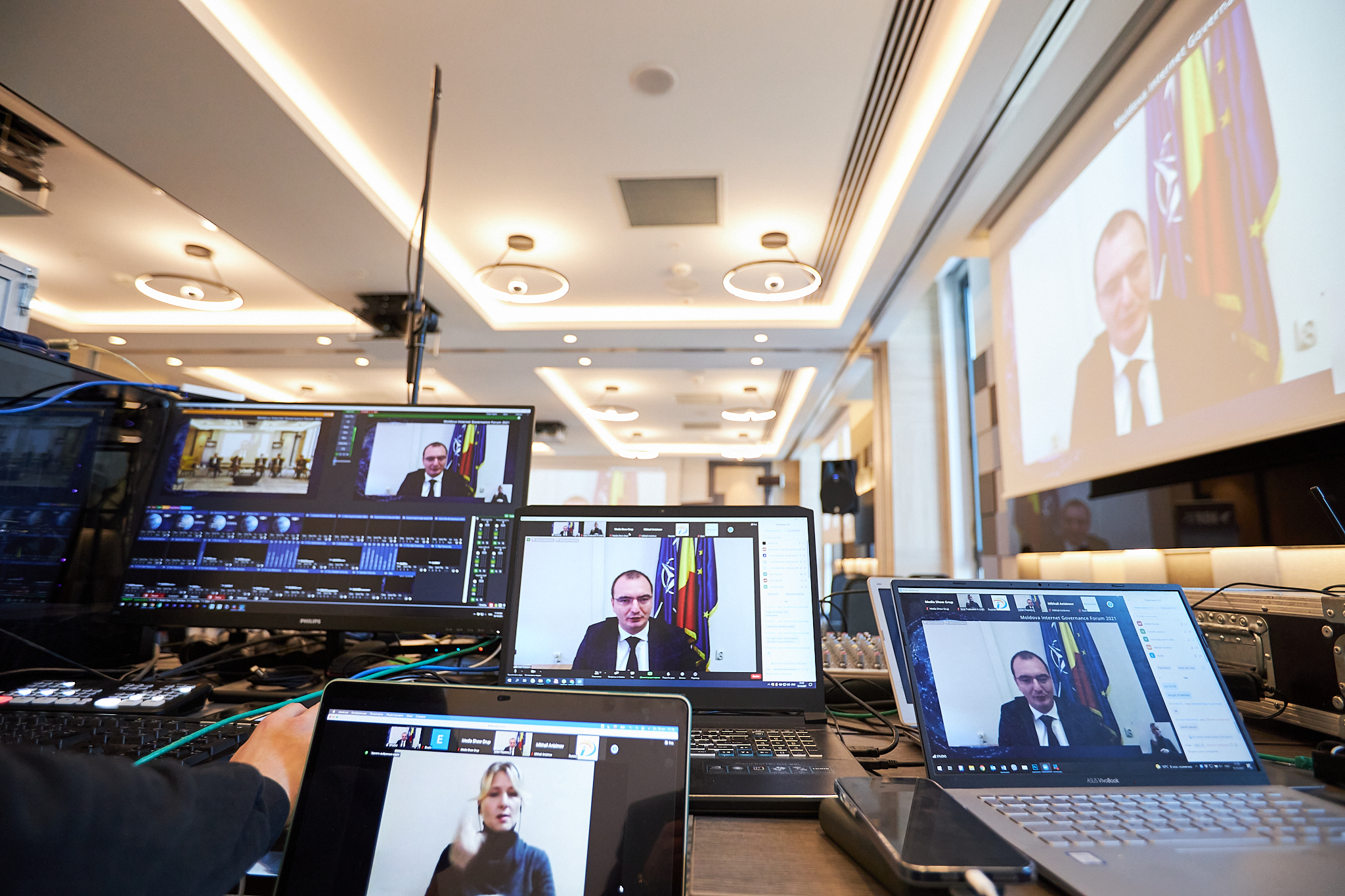
This week Moldova hosted the second Internet Governance Forum (MIGF 2021), which took place in a hybrid format on October 19-20. The Forum, organized by the Association “Comunitatea Internet”, became an international platform for an open dialogue between different stakeholder groups: civil society, technical and scientific community, private sector, government and public sector.
Parliamentarians, representatives of the government and key state institutions, international and non-governmental organizations, technology and consulting companies, experts in the field of digital business and digital development joined the discussions. More than 50 speakers and experts from Moldova, Romania, Ukraine, Russia, Georgia, Estonia, Serbia, Kyrgyzstan, Kazakhstan, Canada, USA and other countries participated in MIGF.
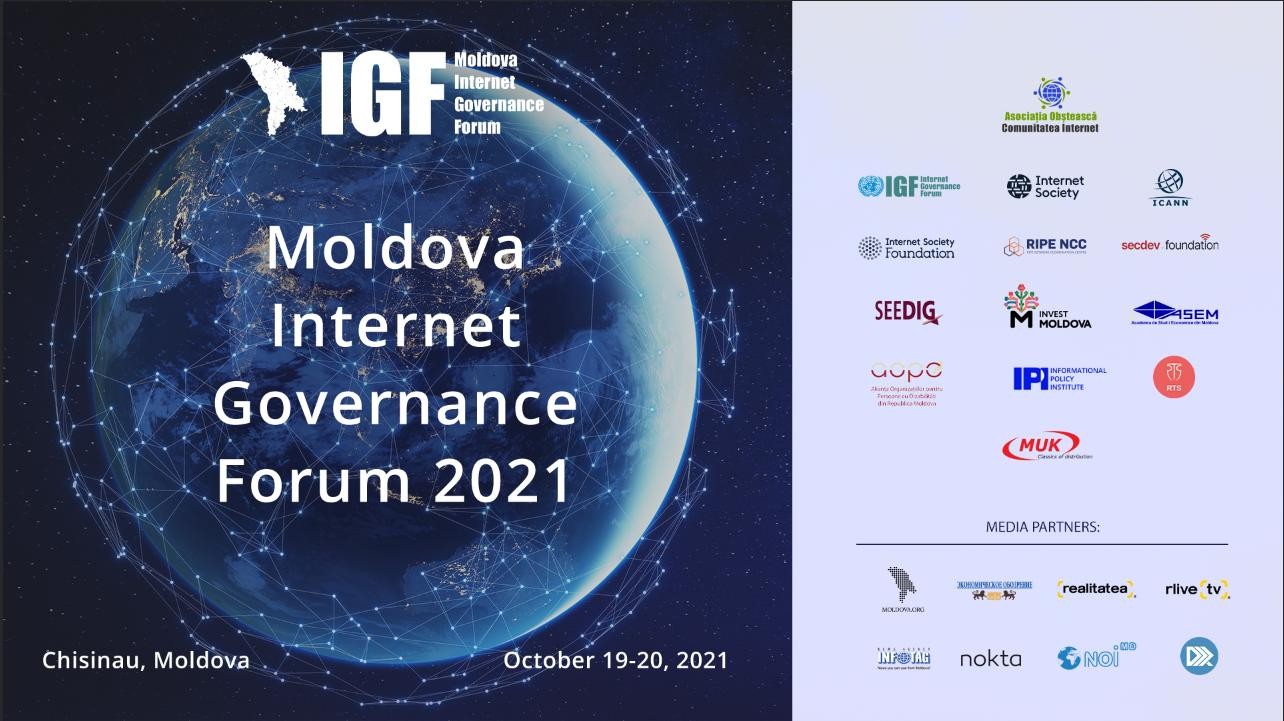
Iurie Țurcanu, Deputy Prime Minister for Digitalization, said at the Opening of the Forum that “we need a safe and secure Internet, we must make every effort to have a guaranteed and secure virtual space, where every user can use the Internet safely”. “MIGF is a good opportunity to discuss this topic of great importance, especially now, in the context of the global pandemic crisis. I would like to note the importance of meeting in this format and the need to strengthen the efforts of different categories of actors, such as the public sector, civil society, the technical community, academia, the private sector, international organizations, to discuss problems related to access to the Internet, as well as security in the virtual environment. I would like to thank the participants and organizers for having the courage to organize such an event in such difficult times”, the Deputy Prime Minister noted.
Iurie Țurcanu assured of the Moldovan Government’s openness for cooperation. “It is crucial for us to maintain this connection and, by combining efforts, perseverance and consistent investments, find a balance between sustainability and digital development. Leveraging the resources of multi-stakeholder partnerships can facilitate investments in digital infrastructure and build capacity for data privacy and security. These actions are essential for Moldova’s digital future,” concluded the Deputy Prime Minister.
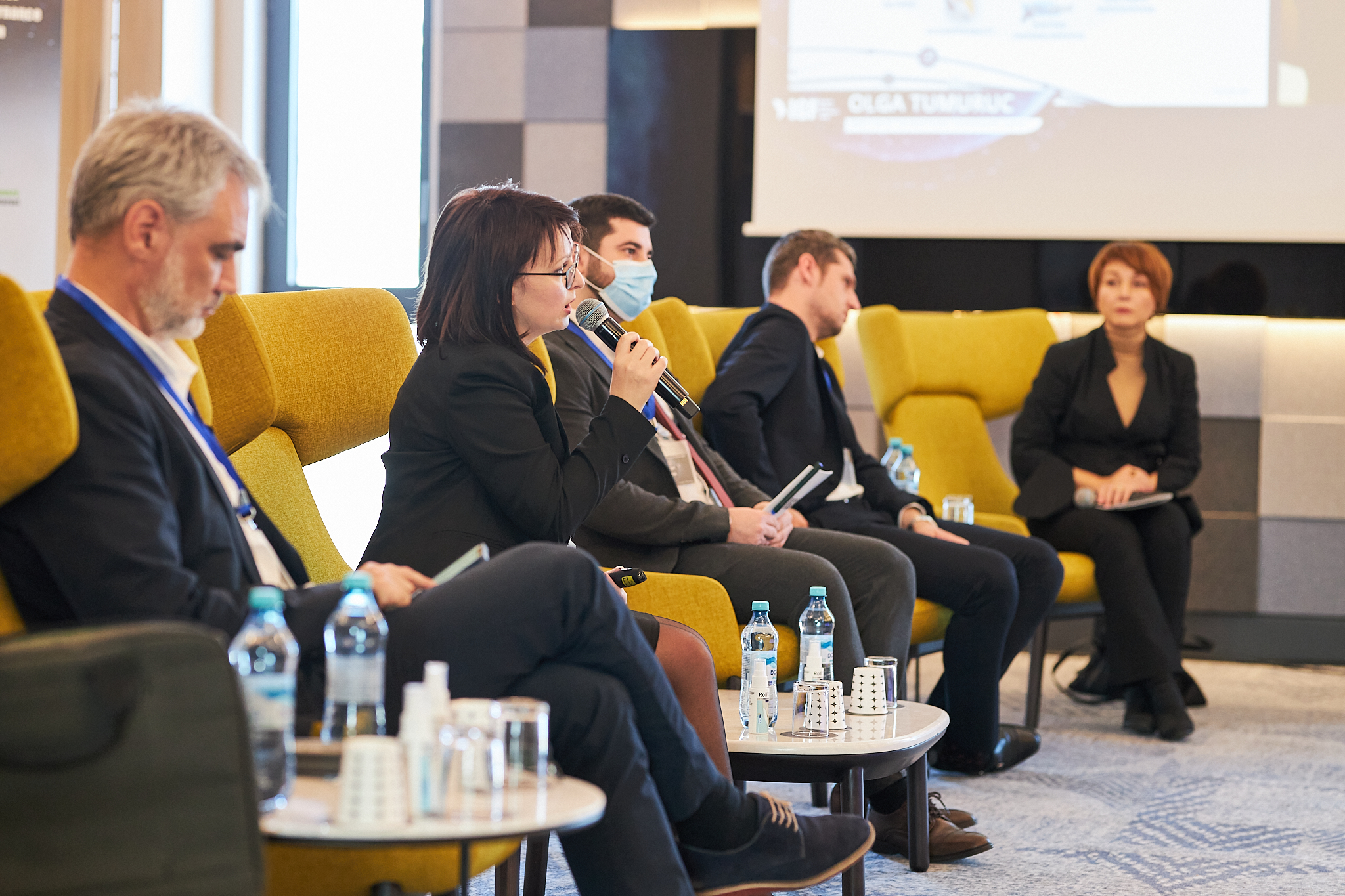
Stelian Manic, Director General of the Invest Moldova Agency, recalled the importance of efficient Internet governance in the modern society. He said the Internet governance ecosystem implies that each country must bring technological innovations to the government, redefining processes, streamlining public services and engaging them for the benefit of citizens. At the same time, he pointed out that Internet governance is not just about effective, efficient and responsive management based on smart investments in information technology. It must also be about security and reliability, sustainability and trust.
“Whether the Internet will be transparent, secure and accessible to all depends on our ability to work together and guide these technologies in ways that maximize benefits and minimize unintended consequences and risks. All we need to do now is create a safe space that promotes the empowerment of Internet users. A safe space for learning, work, play, discovery and growth”, stated the Head of Invest Moldova.
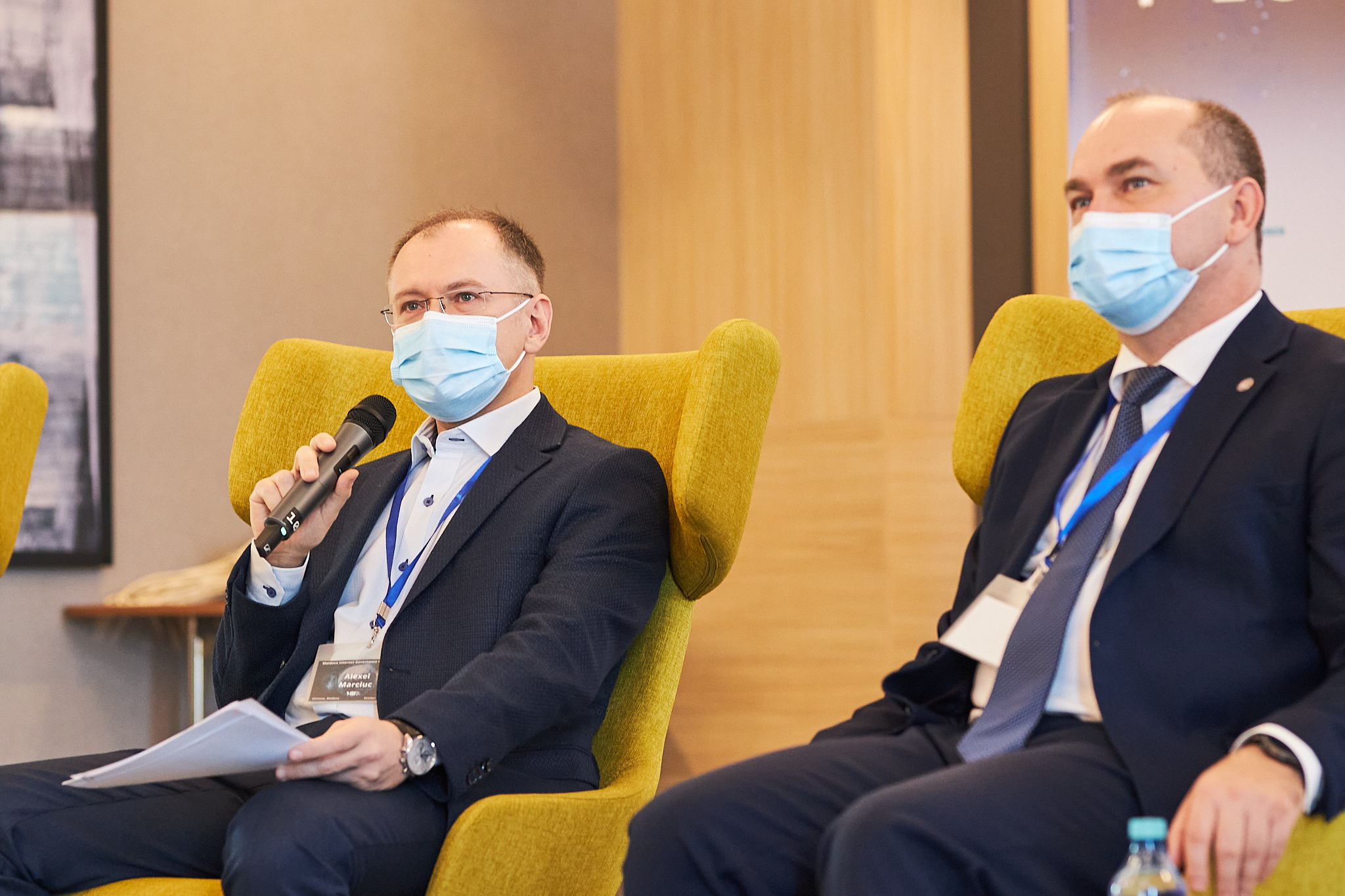
Representatives of international partner organizations addressed the Forum participants with welcoming remarks: Chengetai Masango, Head of the United Nations Secretariat for the Internet Governance Forum, David Frautschy Heredia, Director for European Government and Regulatory Affairs at Internet Society (ISOC), Mikhail Anisimov, Head of Global Stakeholder Engagement for Eastern Europe and Central Asia, Internet Corporation for Assigned Names and Numbers (ICANN), Chris Buckridge, Head of External Relations for the RIPE NCC, Regional Internet Registry for Europe, the Middle East and Central Asia, Olga Kyryliuk, Chair at South Eastern European Dialogue on Internet Governance (SEEDIG), Tattu Mambetalieva, Chair at Central Asian Internet Governance Forum (CAIGF).
Speakers welcomed multi-stakeholder discussions involving national and international stakeholders on how best to use digital data for the public good, how to shape and improve data governance mechanisms that recognize diversity, empower business and civil society, and contribute to the Sustainable Development Goals. These goals include bridging the digital divide, promoting digital inclusion, achieving universal connectivity, and protecting human rights on the Internet.
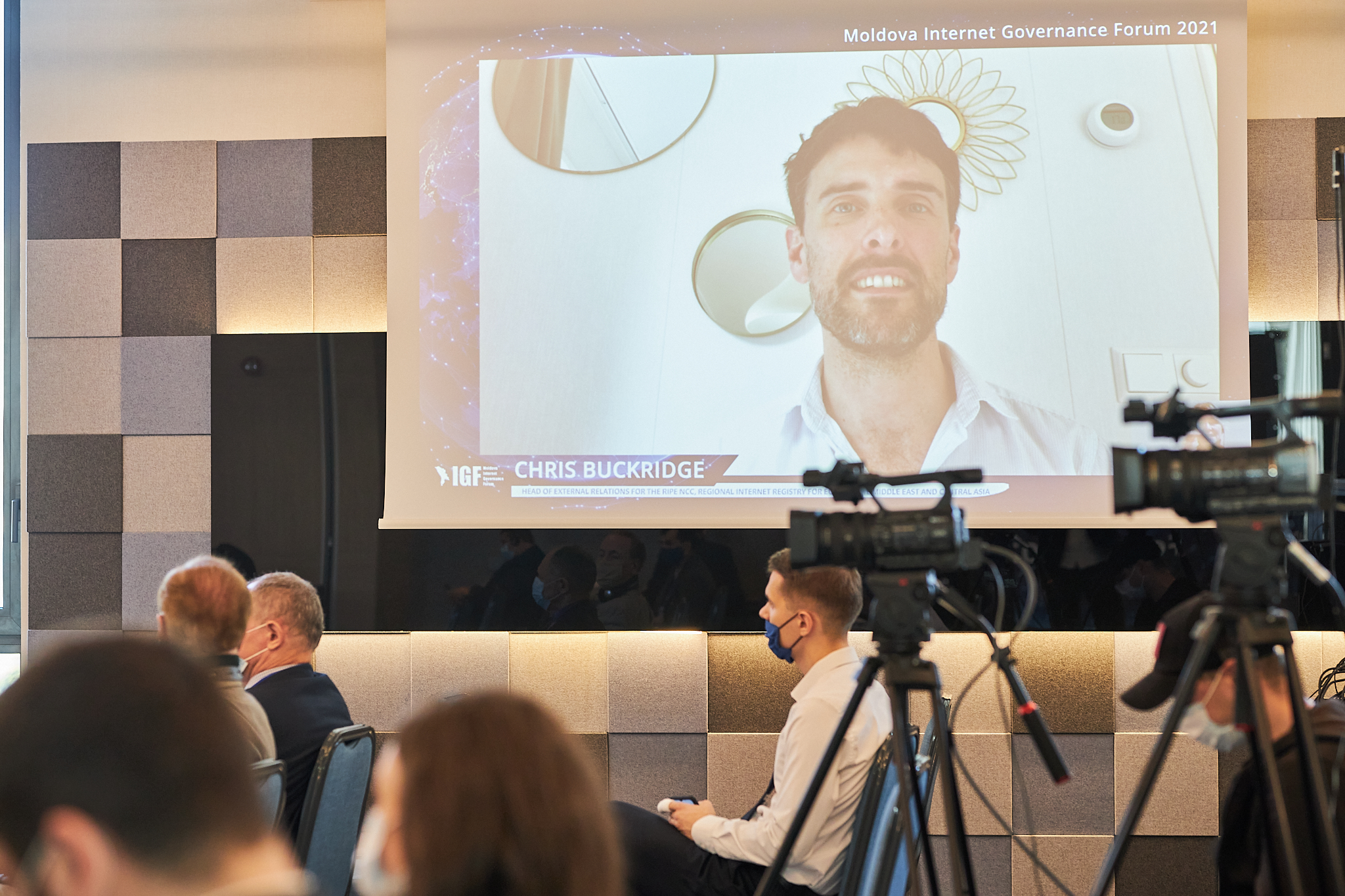
Alexei Marciuc, Chairman of the Association “Comunitatea Internet” and MIGF coordinator, reminded that the Internet Governance Forum is held in Moldova for the second year in the context of the COVID-19 pandemic, which highlighted the importance of digital technologies and the urgent need to enhance the role of IGF as a platform for dialogue, playing a unique role in the architecture of digital cooperation. He said the pandemic highlighted the needs of digital development and the need for digital empowerment.
“Two years into the COVID-19 pandemic confirmed that Internet access protects health care, jobs and, without exaggeration, lives. At the same time, the pandemic exacerbates inequalities of all kinds, including the digital divide. Those without access to digital technologies are deprived of the opportunity to learn, communicate, trade, shop, work and participate in many areas of modern life. On the other hand, connectivity has increased vulnerability to harm and abuse of all kinds. In particular, we have encountered an increase in such phenomena as disinformation, hate speech, and discrimination in the digital space,” said Alexei Marciuc.
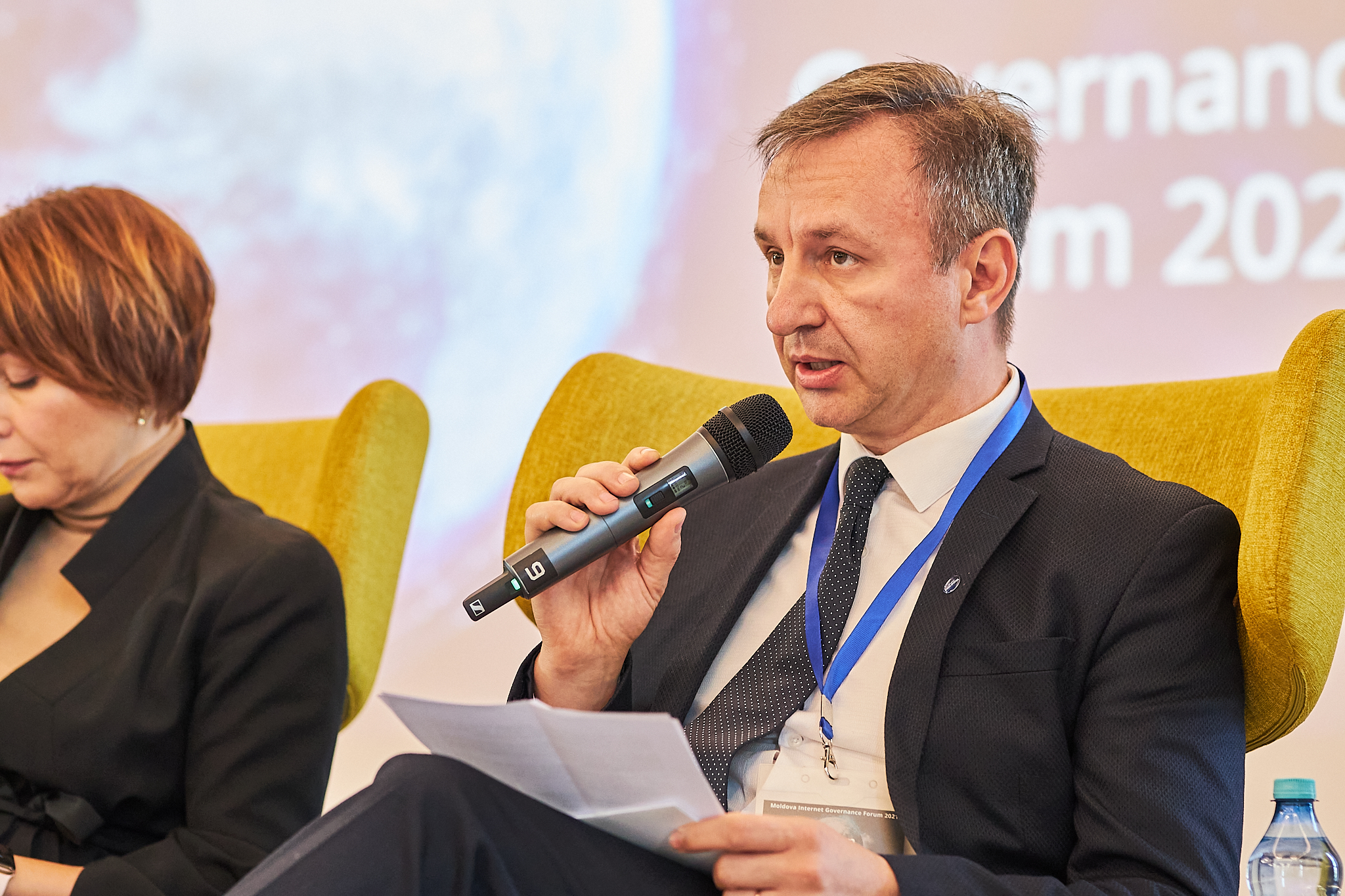
Olga Tumuruc, Director of the e-Government Agency, took part in the panel discussion “Digital Inclusion and Multilateral Cooperation in Managing the Digital Future,” she presented to the audience the work of the institution and its main tasks: modernization of public services, coordination of investments in information technologies, development and implementation of e-transformation solutions, creation of platforms and services to improve relations between the state, citizens and business. Olga Tumuruc also mentioned initiatives for digital inclusion of certain categories of population and ensuring access to public services for people with disabilities through innovative tools, applications and modern technologies.
The Internet Governance Forum in Moldova is held with the support of international partners, including the UN IGF Secretariat, ICANN, Internet Society, Ripe NCC, SecDev Foundation and national partners – Invest Moldova Agency, Academy of Economic Studies, IT consulting and security companies RTS and MUK, as well as a number of civil society organizations and state institutions.
At the core of this year’s MIGF agenda: digital inclusion, which is necessary for sustainable economic recovery, issues of trust, security and stability in the digital space, Internet freedom, e-learning, regulation of ICT sector in the period of digital transformation. A separate session addressed the issues of digital accessibility for people with disabilities and special needs. In addition, the Forum included special events organized jointly with Freedom House and The SecDev Foundation, Canada.
IT
MIGF 2021: Moldova’s Digital Future in the COVID-19 Era
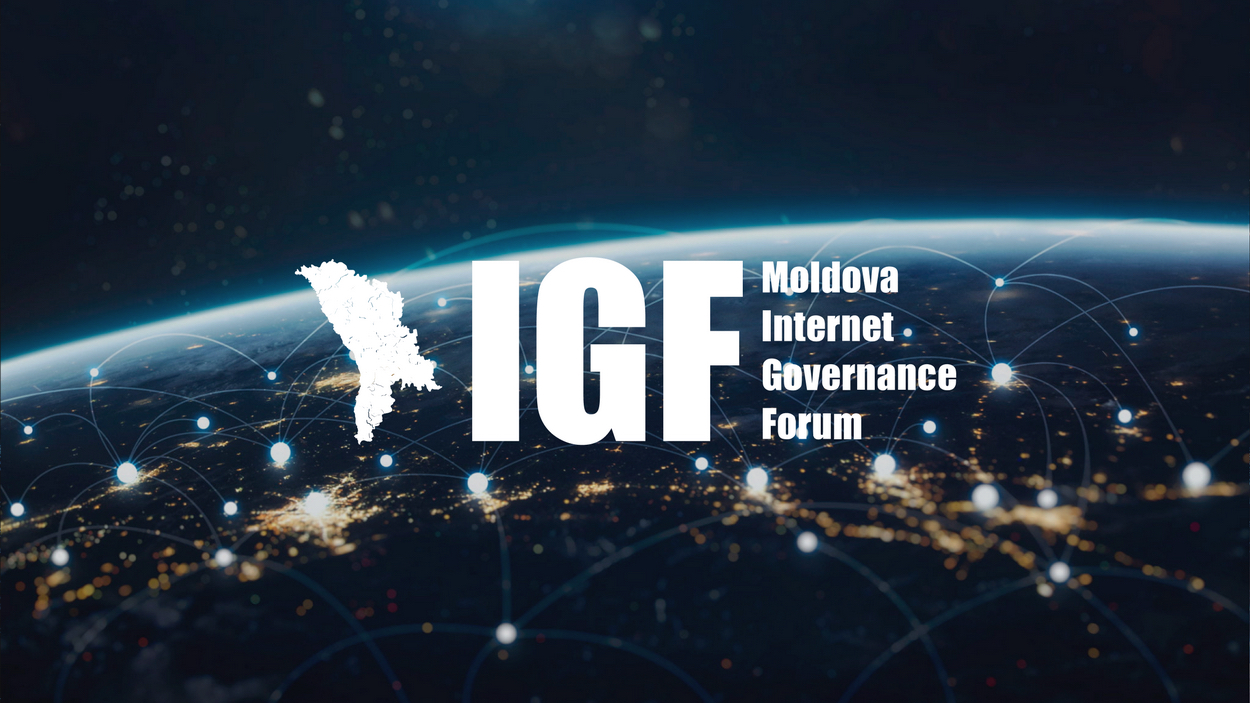
The Internet Governance Forum (MIGF) will be held in Chisinau on October 19-20. It will be attended by representatives of government agencies, international, non-governmental and expert organizations, digital business, technology companies, digital development experts from Moldova, Romania, Ukraine, Kyrgyzstan, Canada, the United States and a number of other countries.
The discussion of current problems of the digital agenda and the development of the Internet will be focused on 4 main tracks: trust and security, digital Inclusion and bridging the digital divide, digital rights and freedoms, digital data. Forum agenda consists of 8 plenary sessions and panel discussions, including special events, jointly organized with Freedom House and SecDev Foundation.
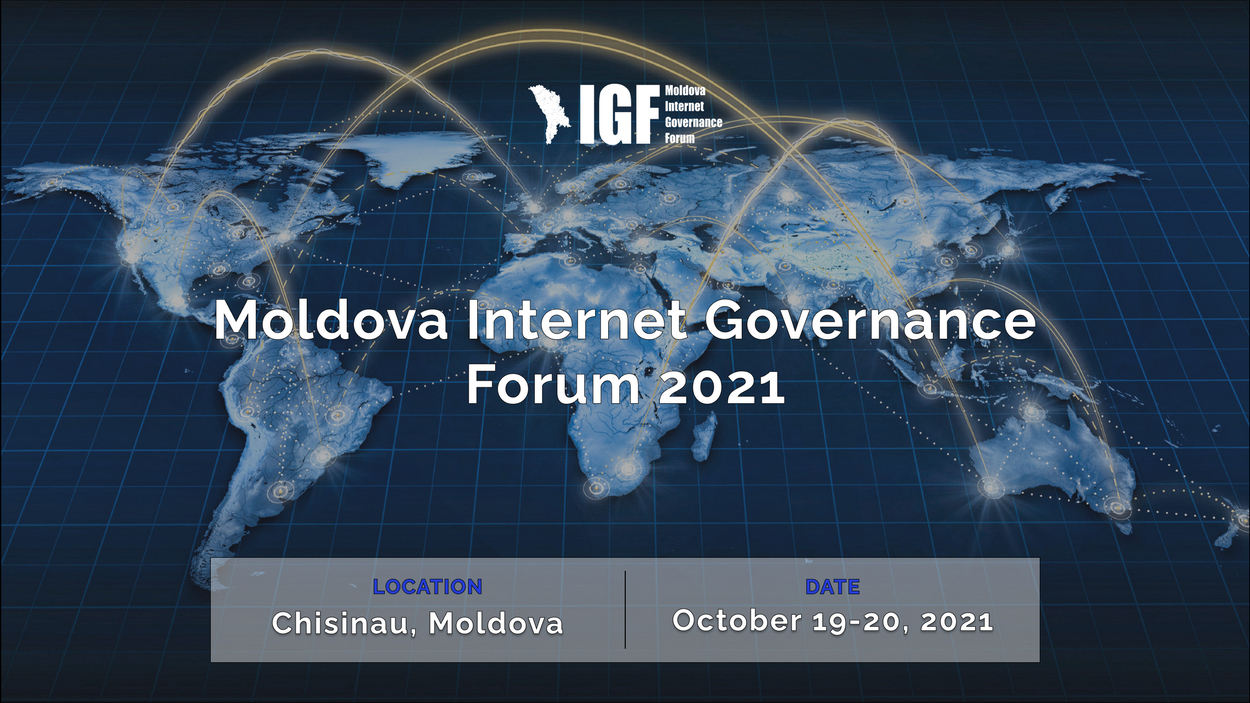
”In 2021, MIGF sets itself the task of strengthening open multilateral discussion of the development of the Internet in Moldova, the country’s participation in the formation of the global digital agenda, and a joint search for a balance between security and development. The COVID-19 pandemic has drawn special attention to the needs of digital development, the need to empower digital rights and opportunities against the backdrop of serious difficulties that society and the state face during this period”, said MIGF Coordinator Alexei Marciuc.
According to him, the holding of MIGF 2021 in Chisinau will serve to actualize the tasks of the digital agenda in the post-pandemic crisis, determine the prospects for multilateral dialogue on the sustainability of the global Internet and the priorities of a common digital future.
The forum will host expert discussions, speeches and presentations both online and offline. It is planed the participation of representatives of UN IGF, ICANN, RIPE NCC, Internet Society (ISOC), SecDev Foundation, Freedom House, Microsoft, SEEDIG, etc. Among the national partners of the forum are the Investment Agency “Invest Moldova”, the Academy of Economic Studies of Moldova, non-governmental organizations, companies RTS and MUK in the field of IT-consulting and security. Special guests of the event: Deputy Prime Minister for Digitalization Iurie Turcanu, members of Parliament, representatives of key government agencies, national and international organizations.
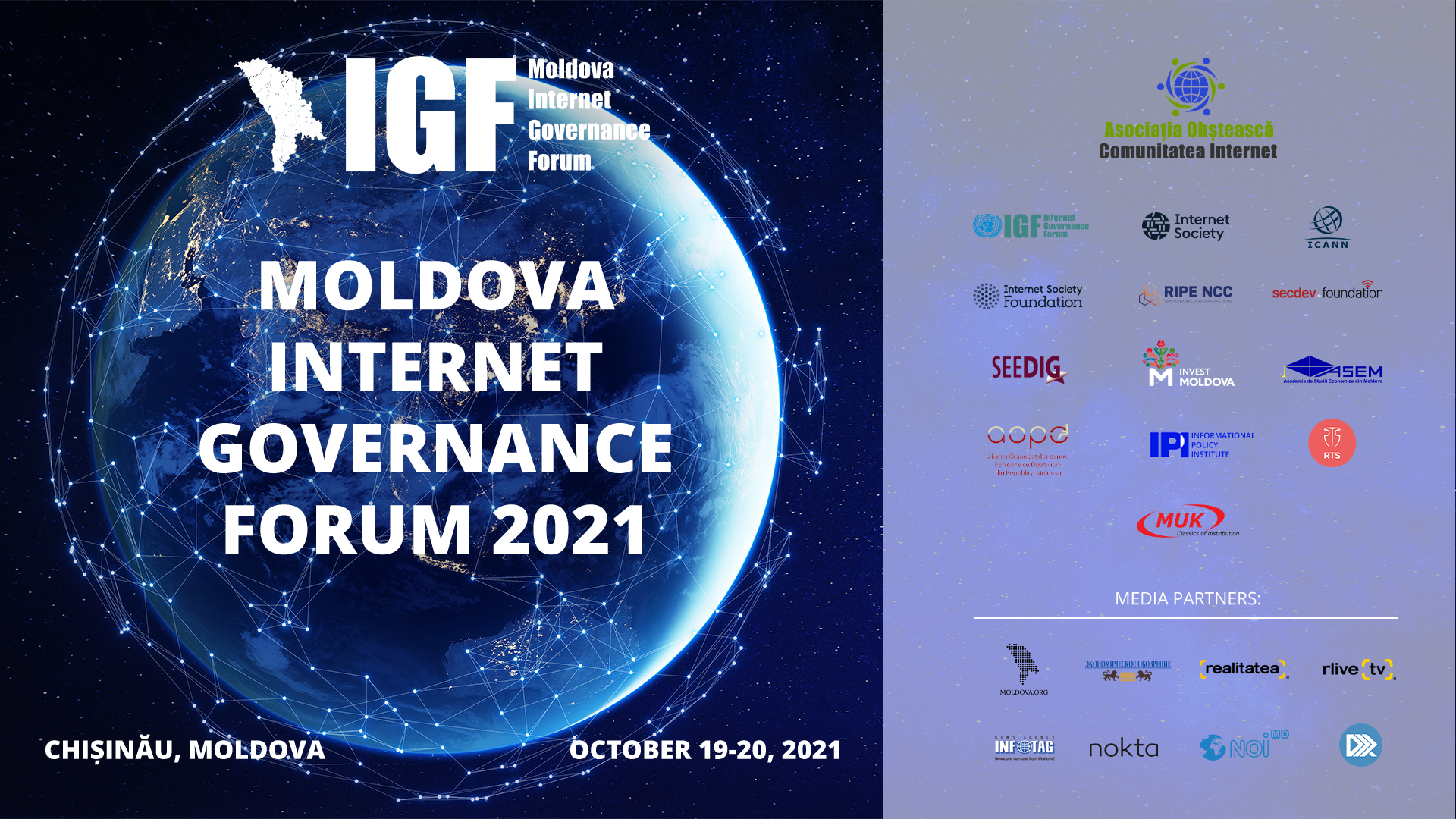
As part of the main tracks, expert discussions will be held on the topics:
- Digital inclusion and multistakeholder cooperation in managing the digital future
- Trust, security and stability in the digital space
- Digital accessibility for people with disabilities and special needs
- Internet freedom in Central and Eastern Europe. Trends and сhallenges, lessons for Moldova
- ICT regulatory in times of digital transformation
- Data sovereignty and trusted online identity
- E-learning as a road to online universities. National and regional experience
- The Rationale for a culture of digital safety in civil society organizations
The Moldova Internet Governance Forum is a national initiative of the global IGF of the United Nations, which in turn is convened by the UN Secretary General and is an international multi-stakeholder platform for dialogue on Internet governance issues.
Since 2020, MIGF has become an annual event where representatives of the expert community discuss global and national approaches to Internet governance, cybersecurity and digital resilience, regulation, expanding Internet access and bridging the digital divide, innovation and digital development strategies.
To register for participation in the MIGF, use the online form on the website www.igf.md. Registered attendees will receive an email connection information to participate in this event.
Justice
Changing the judiciary or replacing the Prosecutor General – what starts a successful judicial reform?

The newly elected government decided to take action regarding one of its main priorities, which was previously announced – the judicial reform. Namely, an amendment to the existing Law on the Office of the Prosecutor General (OPG) was voted through the first reading on August 13. The bill provides for introduction of a mechanism for evaluating the performance of the Prosecutor General, as well as his dismissal following a proposal submitted by the Superior Council of Prosecutors (SCP) in case he fails in his duties.
The performance of the Prosecutor General would be evaluated once per year by a 5 members commission formed by the SCP. One member would be proposed by the President of the Republic of Moldova, the second by the Ministry of Justice, the third by the Superior Council of Magistracy (SCM), the forth by the Superior Council of Prosecutors and the last one by the Prosecutor General (PG). In case at least 3 members of the SCP, the Performance Evaluation Commission or the President of the Republic of Moldova take the initiative, disciplinary proceedings may be brought against the Prosecutor General. If a criminal investigation is initiated, an interim PG is appointed by the SCP.
The authors of the bill (MPs of the Party of Action and Solidarity) claimed that the proposed changes would not affect the independence and autonomy of the OPG and that of the Prosecutor General, as the Superior Council of Prosecutors has the decisive role in making the decision. “The introduction of regulations on the evaluation of the Prosecutor General’s performance, as well as regulations on the application of disciplinary liability to the Prosecutor General comes to ensure accountability of the institution, and establishes a balance of power and control between the Prosecutor General and the Superior Council of Prosecutors,” the authors of the bill said.
During the same plenary session, MPs supported through the first reading the amendment to the normative acts providing for the election and appointment of members in the Superior Council of Magistracy and the Superior Council of Prosecutors. The candidates of both councils are required to hold office for at least 3 years and not to be penalised in the last 3 years. Six members of the SCM would be elected by the General Assembly of Judges, next to three ex officio members and three law professors appointed by Parliament.
At the same time, the proposed amendments seek to reduce the number of the SCP members from 15 to 12, by excluding the Prosecutor General, the Chief Prosecutor of the ATU (Autonomous Territorial Unit) Gagauzia Prosecutor’s Office and the President of the Lawyers Union.
The Parliamentary Committee in charge of Legal Affairs, Appointments and Immunities invited all interested parties to public consultations, on 18 August, regarding the previously mentioned bills, after civil society organizations have made a public request to organize “genuine and inclusive public consultations, in strict compliance with the legislation on transparency in decision-making.”
A smart move or a hasty reform?
The modifications to the Law on the Office of the Prosecutor General approved in Parliament were criticised by some experts, despite the fact that Sergiu Litvinenco, the main promoter and the one who initiated the bill, argued that “the changes contain sufficient guarantees to ensure correct procedures both in the case of performance evaluation and in the case of disciplinary procedure.”
The president of the Center for Legal Resources of Moldova, Vladislav Gribincea, declared that amending the Law on the Office of the Prosecutor General every time the government does not like the prosecutor general “creates dangerous circumstances and puts the Prosecutor General at the mercy of politicians.”
” No matter how well-intentioned politicians may be, a politically dependent prosecutor could be more dangerous than one with modest performance.”
The expert also said that the modifications make no sense, as long as the dismissal of the Prosecutor General can be initiated only by the Superior Council of Prosecutors – a representative and self-administered body of prosecutors. “The SCP has not made proposals for dismissal, not even for disciplinary sanctions on much more critical situations committed by prosecutors. I do not see how this mechanism will lead to the de facto dismissal of Mr. Stoianoglo. I rather see this as a legislative pirouette, in order to further intensify the pressure on the General Prosecutor, causing him to leave.”
Former President of the Constitutional Court, Alexandru Tanase, stated that “although it contains high standards in the organization of the Office of the Prosecutor General, changing the rules of the game without changing people, does not generate any results.”
“The Venice Commission needs to be consulted, and the EU needs to make sure that the government does not make mistakes with this hasty reform,” claimed the expert Dionis Cenusa.
The OPG response was transcendent, still superficial: “The level of understanding by the current government of the principles of the rule of law is unexpectedly weak and, at the moment, we do not see the point of commenting on anything. The OPG response to any attack on its institutional and procedural independence will be proportionate to the seriousness of such attacks.” Regarding that, Vladislav Gribincea commented that there could not have been “a more inappropriate reaction of the OPG. The only tool of the institution is to file criminal cases against politicians. I think that is the last thing the Office of the Prosecutor General needs now.”
According to WatchDog expert Valeriu Pasa, the new law proposes to remove the SCP from the control of prosecutor, but that does not mean handing it over to politicians. “Civil society, academic environment, the ombudsman will participate in the process. Still, the largest number of members (5 out of 12) will be prosecutors. No one would have full control, as it is now. That would mean a much more balanced system,” he explained.
“Consolidating the system formed and led by the puppets of Plahotniuc and Platon is stupid. For the Party of Action and Solidarity that would be a political suicide. Is there a risk of political subordination of decisions taken by prosecutors and judges? Of course! And that must be the red line. The only safeguard against these abuses is the self-control of the new government and the strict monitoring of civil society and external partners, but also of the parliamentary and extra-parliamentary opposition. If Plahotniuc’s control over judiciary gets replaced by the PAS’s control – everything has been in vain.”
The expert believes that the current Prosecutor General, Alexandru Stoianoglo, must resign because he has been elected through a vicious procedure intentionally organised by socialists. Another important reason is his inactivity concerning important investigations, the lack of progress when it comes to sanctioning or holding people accountable for major abuses, as it is the case of Veaceslav Platon or Ilan Shor, who left the country without any impediments. This was one of the arguments of the current government as well, in addition to the intention to bring the law into line with the Constitution in order to establish a mechanism for evaluating the activity of the Prosecutor General.
What changes will the current amendments undergo through the second reading, and whether the PG resigns or is dismissed – those are the next big questions.
Photo: parlament.md





















